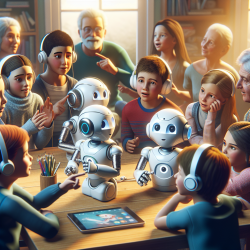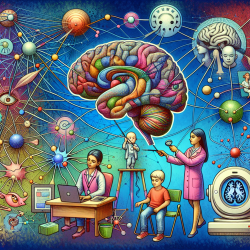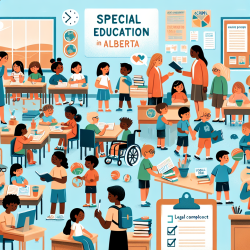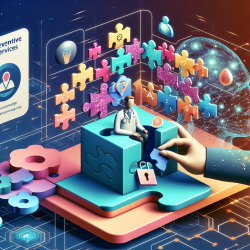As a speech-language pathologist, it is crucial to stay abreast of the latest research and technology that can improve therapeutic outcomes for children. One promising area of research is the use of socially assistive robots (SAR) to provide additional language training for individuals with expressive aphasia. A recent study titled "Exploring How People with Expressive Aphasia Interact with and Perceive a Social Robot" offers valuable insights that can be applied to enhance language therapy practices.
Key Findings and Implications
The study, which involved 11 participants with mild to moderate chronic expressive aphasia, found that interacting with the social robot NAO was generally well-received. Participants reported that the robot was enjoyable, useful, and, to a lesser extent, easy to use. These findings have several implications for speech-language pathologists working with children:
- Increased Engagement: The physical embodiment and multimodal communication capabilities of SAR can make therapy sessions more engaging for children, thereby increasing their willingness to participate.
- Personalized Interaction: The ability of SAR to tailor interactions in real-time based on the user's responses can provide a more personalized therapy experience, which is crucial for effective language learning.
- Continuous Practice: SAR can offer the high-intensive language training required for significant improvements, addressing the practical barriers of limited therapist availability and funding.
Implementing SAR in Therapy
To integrate the findings of this study into your practice, consider the following steps:
- Assess Compatibility: Evaluate whether the use of SAR aligns with the specific needs and capabilities of the children you are working with.
- Training and Familiarization: Spend time familiarizing yourself and the children with the robot to ensure a smooth integration into therapy sessions.
- Customize Interactions: Utilize the robot's ability to personalize interactions by programming it to adapt its speech rate, volume, and pauses based on the child's responses.
- Monitor and Adjust: Continuously monitor the effectiveness of the SAR in therapy sessions and make necessary adjustments to maximize its benefits.
Encouraging Further Research
While the initial findings are promising, more research is needed to fully understand the potential of SAR in language therapy for children with expressive aphasia. Practitioners are encouraged to participate in or conduct further studies to explore this innovative approach.
To read the original research paper, please follow this link: Exploring How People with Expressive Aphasia Interact with and Perceive a Social Robot.










